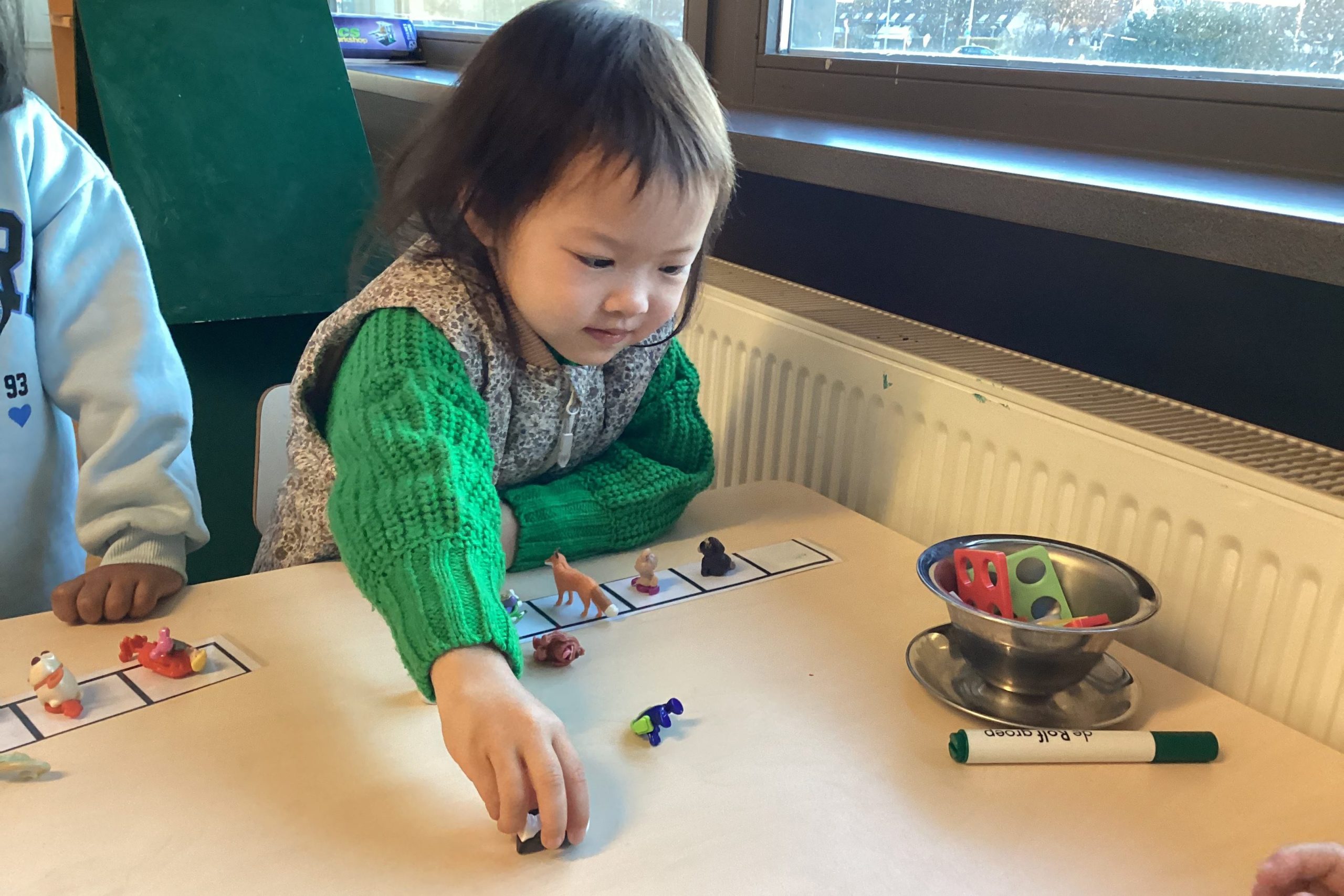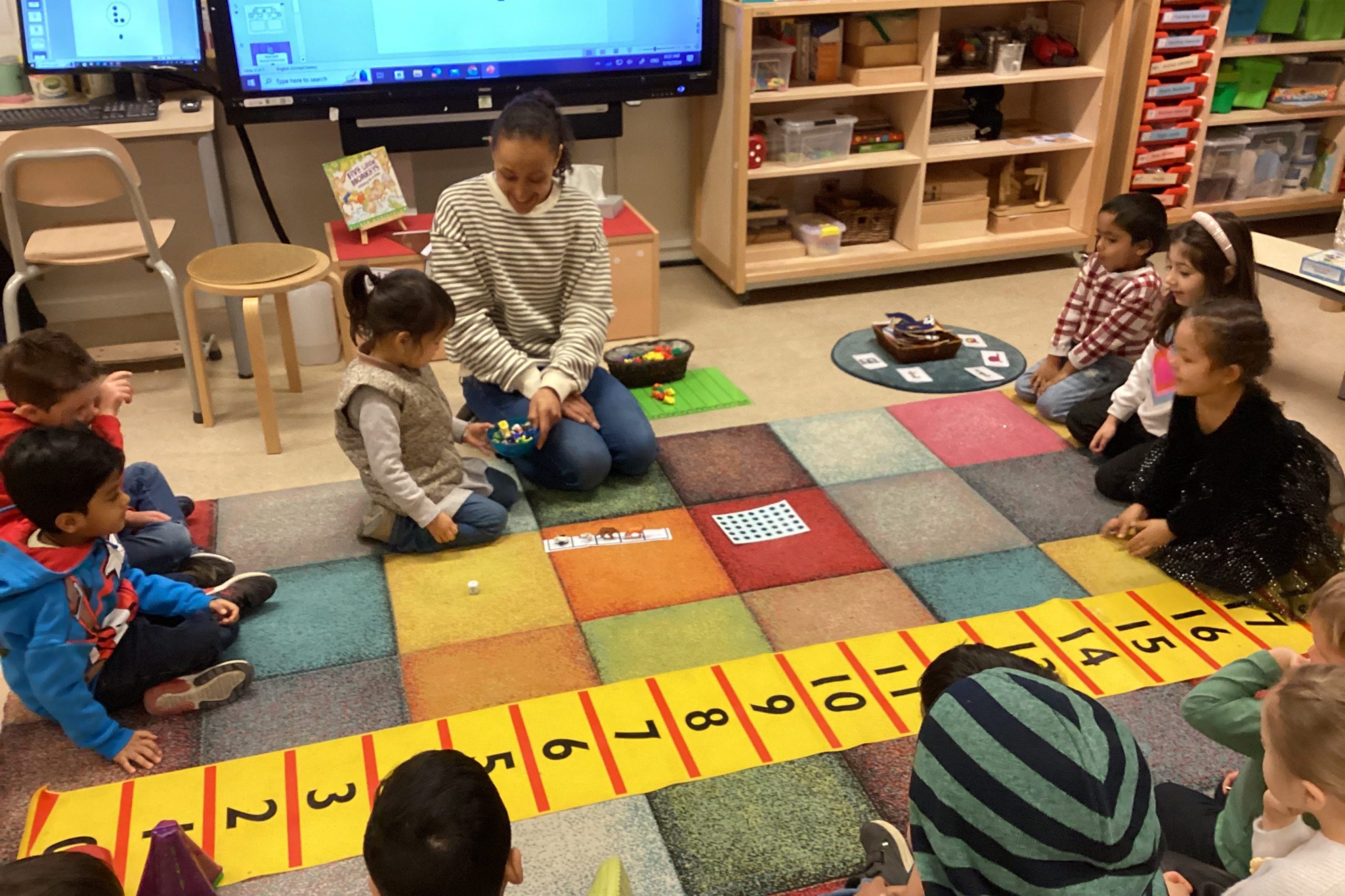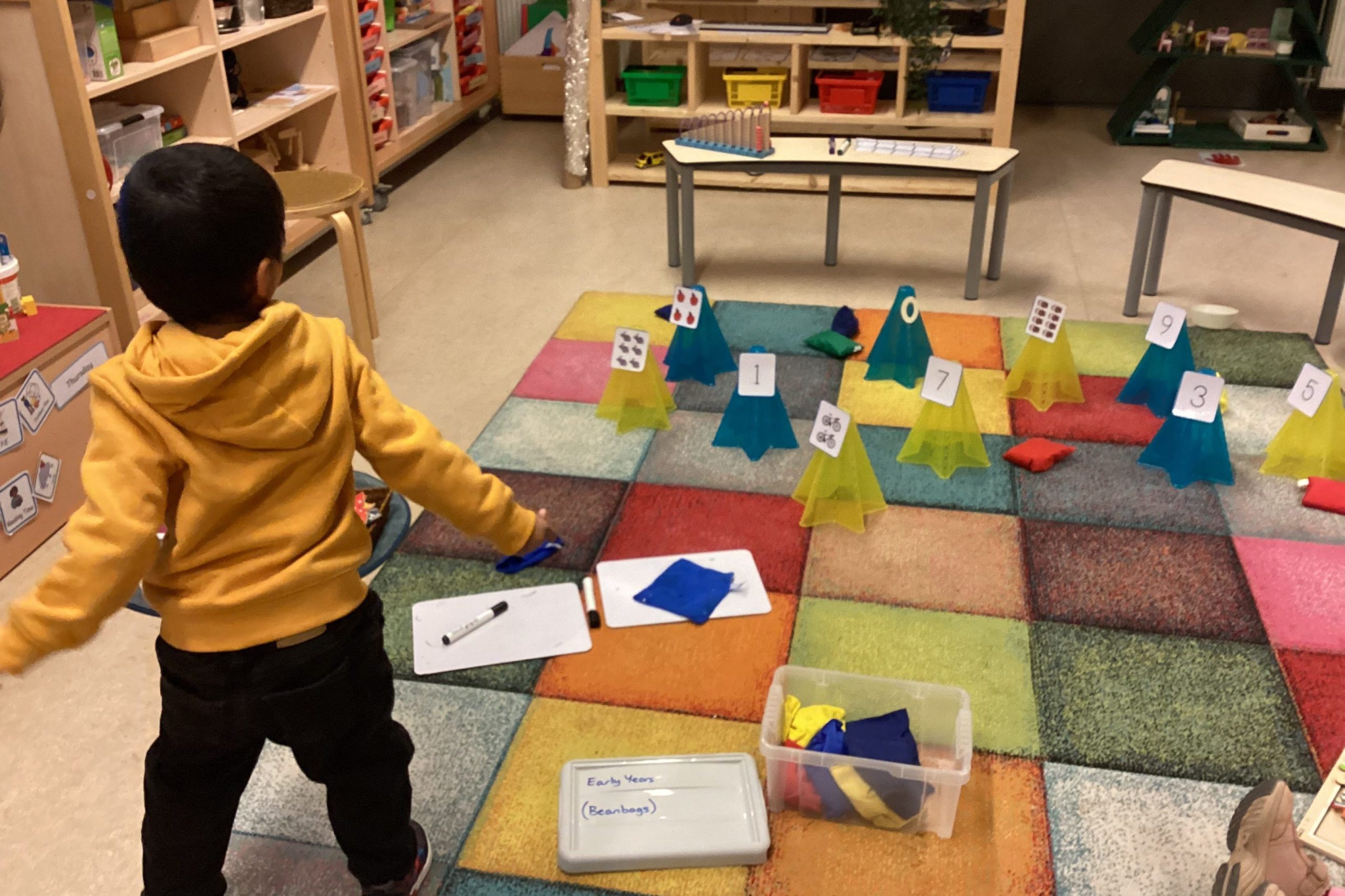
Early Years explore Maths games and dice
Early Years students are taught Maths through a play based pedagogy, exposing children to lots of Maths games to practise their skills in a variety of contexts.
By Jessica DePorto, Teamleader Early Years, Teacher 1a
A key skill for young children to develop is knowing how to subitize. Subitizing is the ability to recognize a small numerical amount, without having to count. A perfect way to explore different numerical representations is by using dice. In class we have let the children play a lot with dice and have created learning opportunities where they can roll the dice and complete games such as moving counters along a grid or adding or subtracting different counters from ‘tens frames’.

The power of the dice
Children often love playing with dice and there are now many different varieties of dice available that show different numerical representations such as dots, numerals and even dice that have a different number of faces. Big dice, small dice and foam dice can all be used in a variety of different ways to increase engagement and quick numerical recall of numbers less than 6 or in fact numbers to whichever amount are depicted on the dice faces.
Counting board games where your child follows a simple number track such as Snakes and Ladders, Ludo and Frustration are super ways to explore number and counting at home.
In class children have enjoyed creating their own rules and making up their own games using small toys. Children often love the power of being able to throw the dice and are more eager to engage in a game where they have had ownership.
Making Maths physical is a good way to increase engagement and the students particularly liked bean bag throwing against target numbers that were attached to a cone. Children learned how to keen score of their results using ticks and tallies and this also gave them more opportunity to practise writing numerals in different contexts.

Family fun at home with dice
At home, families might enjoy purchasing different dice and letting children make up rules such as whoever rolls a 6 has to do the dishes or whoever lands on the lowest number after one throw gets to take a Lego block. The person with the tallest Lego tower after 10 throws is the winner.
Remember that games of chance and probability are not only great Maths games but present children with unique practise at learning that sometimes the ‘winning’ element of the game may not always be linked to skill but to chance.
Learning how to cope with disappointment and learning how to be resilient and try again are also noteworthy skills for our youngest learners to master.

